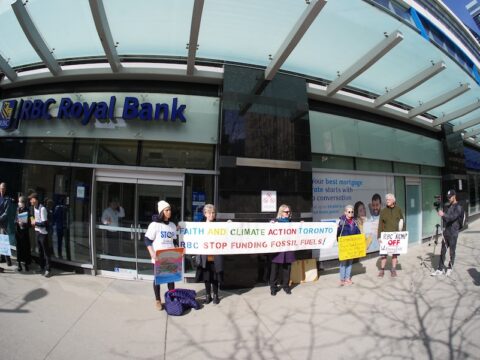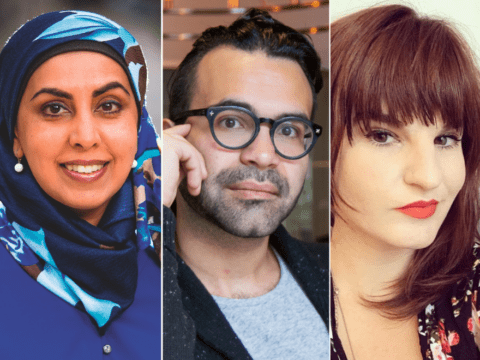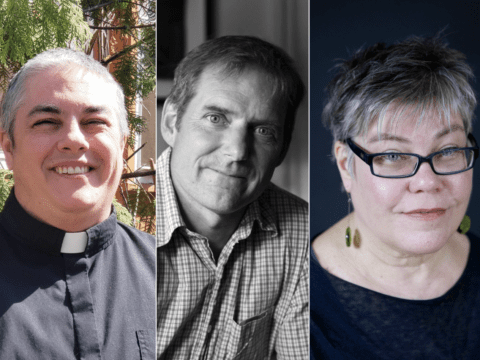Dr. Izzeldin Abuelaish lost three daughters and a niece in Israel’s 2009 attack on Gaza. Today the Palestinian doctor is a professor of public health at the University of Toronto. He spoke to Mike Milne about peace, religion and his book I Shall Not Hate.
MIKE MILNE: After the death of your daughters and niece by Israeli shells, you and your five surviving children could have moved anywhere. Why did you come to Canada?
You may unsubscribe from any of our newsletters at any time.
IZZELDIN ABUELAISH: I became aware, and I think truth prevailed and wisdom prevailed through the tragedy, to show people that military approaches and violence are a waste of time. But what I did after, I did before. Even after the tragedy, it only strengthened me not to accept what is happening in this world and that I have to do my part to change it. And to show by wisdom and good words that I do not accept it. Because words are more resonant than bullets. I chose Canada because I got an offer before the war, and I thought of coming to a place where I can be safe — not for my safety but to be with my kids. After I lost my wife [Nadia, who died of cancer in 2008], I can’t tolerate to be without my kids.
Canada could be a role model for human relations, for respect, for understanding, where people can live in harmony and enjoy their life. And that’s what we need to spread. Canada, with the position it holds, can [wield its] influence in a positive way and make a difference in this world. It’s not where you are, it’s who you are.
MM: The title of your recent book is I Shall Not Hate. Hate is a strong emotion. Has emotion overtaken reason in relations between Palestinians and Israelis?
IA: We don’t want to rule relations by emotions. We need relations to be ruled by wisdom. Emotions are good, the heart is good when we open the heart to feel and to understand —to allow many people to enter our heart, but to fight for them with wisdom. That’s why I said [the title] and meant it.
Because hate is a destructive weapon. It’s someone who carries a suicide bomb, it’s a poison, it’s a blindness, it shuts you down. So I don’t want anyone even to think of that, because it burns the one who carries it and he will never be cured of it. It’s irreversible. Once you are injected with it, it’s hard to get rid of. So we need to immunize ourselves against this hate. But we have the right to feel angry, emotional, outraged about something wrong that is happening in this world. And to direct this anger, this outrage, in a positive way.
It’s like a patient. If the patient doesn’t accept the change in his life if he has a disease, he will never be cured. He has to admit he has a disease, to accept the change and understand it, and induce the change. So change starts within us. Look around you. Don’t ask others to change and you are still there. Change yourself. Others will follow you.
MM: How has your pursuit of peace been informed by your faith as a Muslim?
IA: A phrase from the Qur’an says God will never change what is in people until they change what is in their hearts and souls and minds. What is happening now is in our hearts and souls and minds. We create mental and physical barriers inside us. You don’t know each other, you don’t link, don’t connect. And that’s what we need — to know, to understand each other, to connect with each other. And that starts within each of us.
Faith is important in life; we need to have faith. Religion came to free people from darkness and to show them light. From slavery to freedom, that’s the role of religion— Judaism, Christianity, Islam. One of the first phrases of the Qur’an is: “Advise, call to the road of the Lord with wisdom and argue with kind words.” And that’s important. It stresses the importance of good words and being selective in them. It says in the Qur’an that if you are harsh-hearted, they will never follow you. Kindness, wisdom, respect and listening, these are the good ways.
Words can have impact more than anything else. Words can kill and can save. And that is what we have to plant in the minds of our children, to teach them words, kindness, acts and deeds that people will remember.
MM: Have religions been perverted by extremists?
IA: Religion is religion. The holy books are the same but misused by some people…. We must differentiate between the religion, which is holy and noble, and some acts by people who interpret it and use the name of religion. It is important not to be impulsive. If we hear someone — Jewish, Christian, Muslim — doing something wrong and attribute it to a religion, that is a mistake. We don’t want to generalize. If you visited a country and met someone who is not good or did something wrong, can you generalize it to the whole country? That generalization is blindness. Be specific. We need to be specific.
MM: Formal peace talks between the Palestinian Authority and the Israeli government have stalled. How can ordinary people contribute to the momentum for peace?
IA: For the Palestinians and Israelis, tell them what is going on. Find the way to be safe and secure, and [recognize] that your safety and security is linked with the safety and security of the Palestinians. Because peace is done between two parties. There is no peace that is good and just for one. It must be good for both of them to accept it from goodwill, where both are winning, not where one is winning and the other is losing. This is not peace. Peace is not imposed by force, peace is imposed by choice. And you select it and say, “Oh, that is what we want, Palestinians and Israelis.”
MM: Do you sense that more ordinary Israelis and Palestinians want to move toward peace?
IA: There is a peaceful part in each of us. But also the current situation, you can’t take it away from the political. You need political actions on the ground. If the patient has goodwill, he needs to accept the disease, to admit that he is sick and needs the treatment. But goodwill alone is not enough if it is not accompanied by action. People will lose faith in it.
MM: The United Church has been criticized by Jewish groups for being unbalanced toward the Palestinians in the stands it takes on the Middle East. Does this help or hinder the quest for peace?
IA: Even here, the Jewish people must be happy for what the United Church is doing to open their eyes. They support Israel even when they say to them, “This is not good. What are you doing?” Preventing someone from doing bad things is positive. And I even say to my Israeli-Jewish friends, “Support Israel for good deeds, but for the bad deeds also support them by preventing them from doing these bad things. Encourage them to do good things. Encourage them to act and translate the negotiations and the peace talks into actions with the Palestinian people.”
MM: What can people in the United Church do to help?
IA: They can go there, to visit, to see what is happening in Palestine, to feel outrage. They can volunteer, they can donate, they can speak loudly with the Jewish community here, with the Israeli people there, with politicians, with religious leaders. Don’t say, “How can what I do make a difference?” It can make a difference, even on a small scale.
***
This story first appeared in The United Church Observer’s February 2011 issue with the title “‘Words are more resonant than bullets.’”












